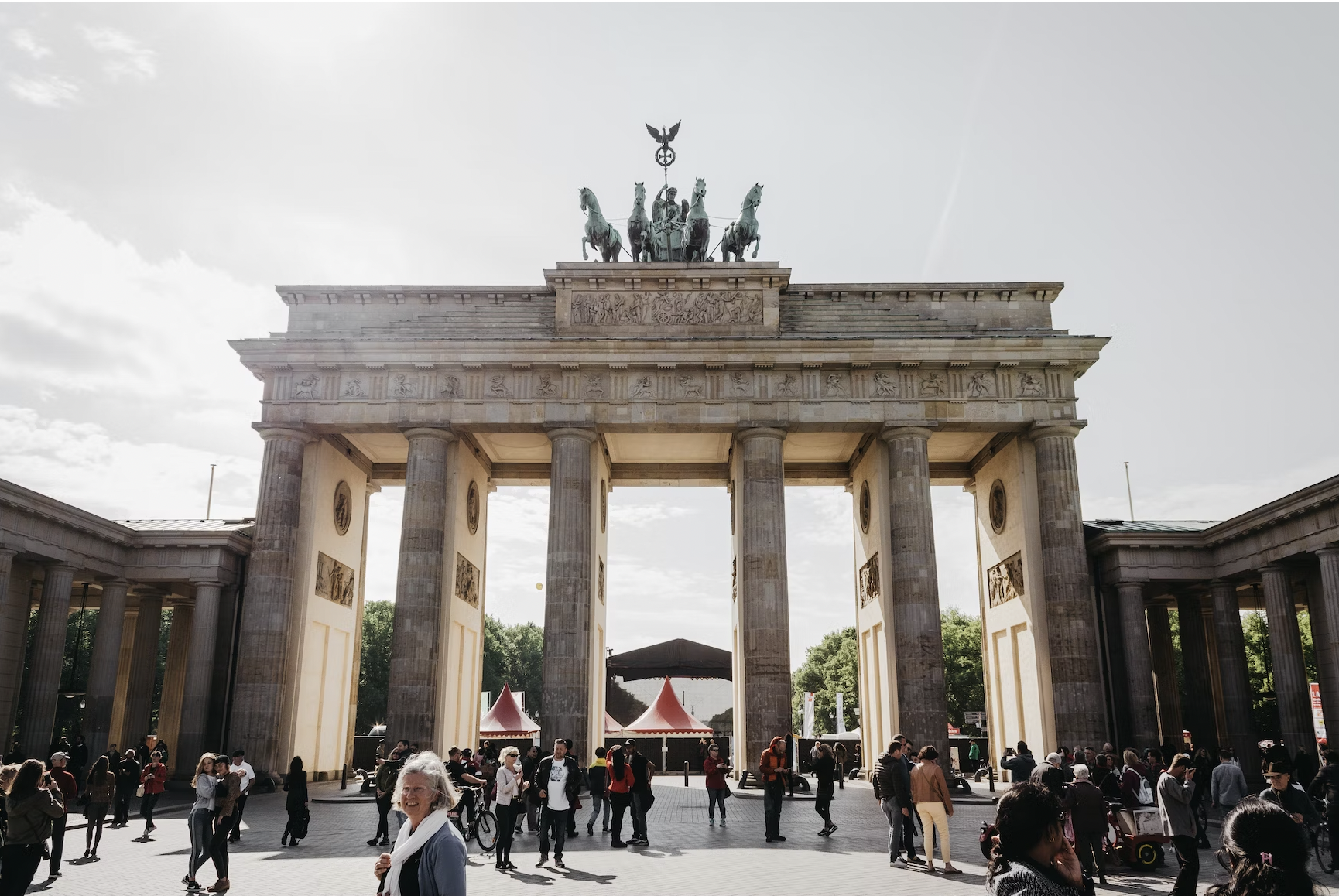This is the second part to our interview with Franziska Brantner, the Parliamentary State Secretary at the German Federal Ministry for Economic Affairs and Climate Action. The interview took place at the Munich Security Conference. The first part can be found here.
For Germany and more broadly, Europe, energy is now as much an issue about climate transformation as security. “Our goal is to make our energy provisions more resilient, more climate-friendly, and [more] affordable”, said Brantner. Referring to Germany’s reliance on Russian energy before the war, she candidly acknowledged that “[Germany] cannot become less diversified than we are today”.
Yet, the biggest question remains: where is the energy of the future coming from? Perhaps Germany will have to increase its reliance on China or other undemocratic regimes, where much of the raw materials that go into generating renewable energy come from. Brantner, however, was quick to dismiss this. “The beauty of the green supply chains is that they are strongly located in our partner countries. Look at Australia, look at Canada, look at Chile, Argentina, Brazil, South Africa, these are all our closest allies. When we diversify from China, we will go to our partners”, she added.
Europe’s leadership in the global transition to green energy has also been challenged by the US Inflation Reduction Act (IRA), a massive programme to subsidise the green sector, offer tax breaks and attract these businesses. This has raised doubts about the strength of the transatlantic alliance among certain policymakers in Europe, as the new legislation has triggered competition for funding and resources between the two major economies.
When asked about these developments, Brantner was quick to express her gratification at the Biden administration for sending a very clear signal that “future markets are green”. She’s also happy to see that the US was willing to amend the Act to modify provisions that would create unfair competition for European EV companies. However, the State Secretary also cautioned that Europe has to maintain its competitiveness at the same time. To do so, there needs to be a “good and stable energy provision”, which explains why Europe has been working on speeding up the diversification of gas resources and providing subsidies while trying to overcome the obstacles posed by labour shortages.
Additionally, “what is important is to have transparency on what kind of funding we have to ensure that we don’t make it a race between the US and the EU to the bottom or race in terms of who just puts more money on the table.”
In the long term, Brantner believes that the green sector is growing. “I’m sure that there’s [room] for all of us, including the US and China, to grow and have a fair share of the market.” Instead of emphasising competition, she argued that countries should create joint markets with joint standards and joint supply chains, and this should include the Global South.
Despite these promises, Germany is still behind on the energy transition. With the War in Ukraine, the government had to turn to coal for energy supply through the winter since the use of renewable energy is still insufficient in the country now. In Brantner’s words, this has been an unfortunate development. Yet, she was keen to highlight the silver lining beneath it all. Earlier this year, the German government renegotiated part of a deal brokered by the Merkel administration to phase out coal consumption by 2038 and advance the coal exit from 2038 to 2030 in West Germany. According to Brantner, the new deal would save billions for German taxpayers and prevent energy giant RWE from demolishing five villages near the coal plants.
“Is it unfortunate that this winter we need to use more coal? Yes, but at least we used it to advance the coal exit by eight years and save five villages”. She also addressed the frustration of climate activists, whom she called ‘impatient’, adding that “as a politician, if I can advance climate protection, I’ll do it even if it’s not perfect. An activist doesn’t have to accept that. It’s not [their] role to say, I accept the good, but I keep on pushing for the perfect.
In the face of all these major policy changes, Brantner went on to suggest that a key priority for her party and the governing coalition is the retraining and upskilling of the working population so they can take on new employment, particularly since there are 1.2 million vacancies in the job market. The ultimate goal is to provide good jobs and infrastructure under a green economy that is also inclusive to all Germans but to get there would require persuading older voters to get on board.
“What we see in Germany is a rather intergenerational question. The younger generation is ready for the transformation that serves their future. The challenge is actually to say to the elder generation, thank you for all you have done, but keeping the status quo now will make us poorer and we need to modernise our structures to keep the wealth we have been able to enjoy. [These are the people] we need to win over.”
When asked whether the Green Party is unequivocally the most progressive party in the governing coalition, Brantner said “certainly,” with an air of confidence and conviction in the change she is hoping to drive in Germany. Ultimately, the future of her country remains uncertain, and that of Europe even more so. Yet, Brantner represents a new generation of German leaders, intent on redefining what her country stands for. For her, the world is rapidly changing, and so must Germany.

